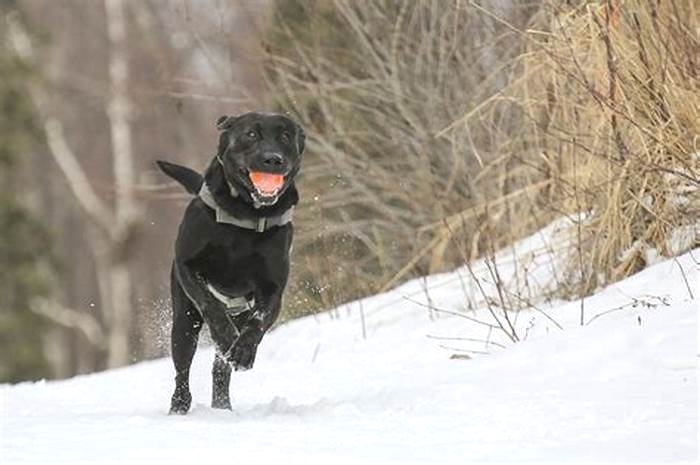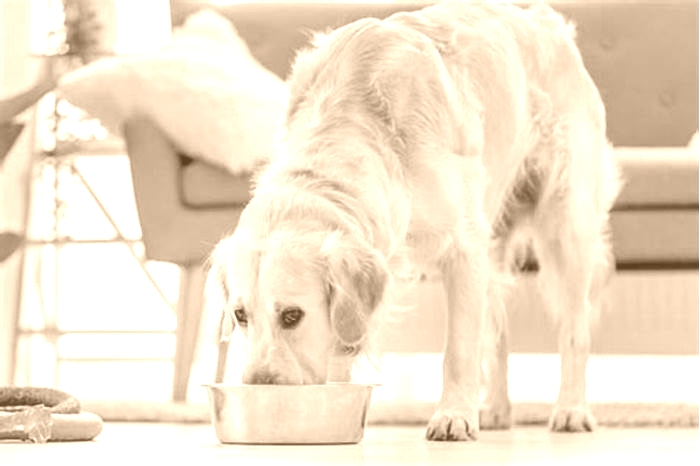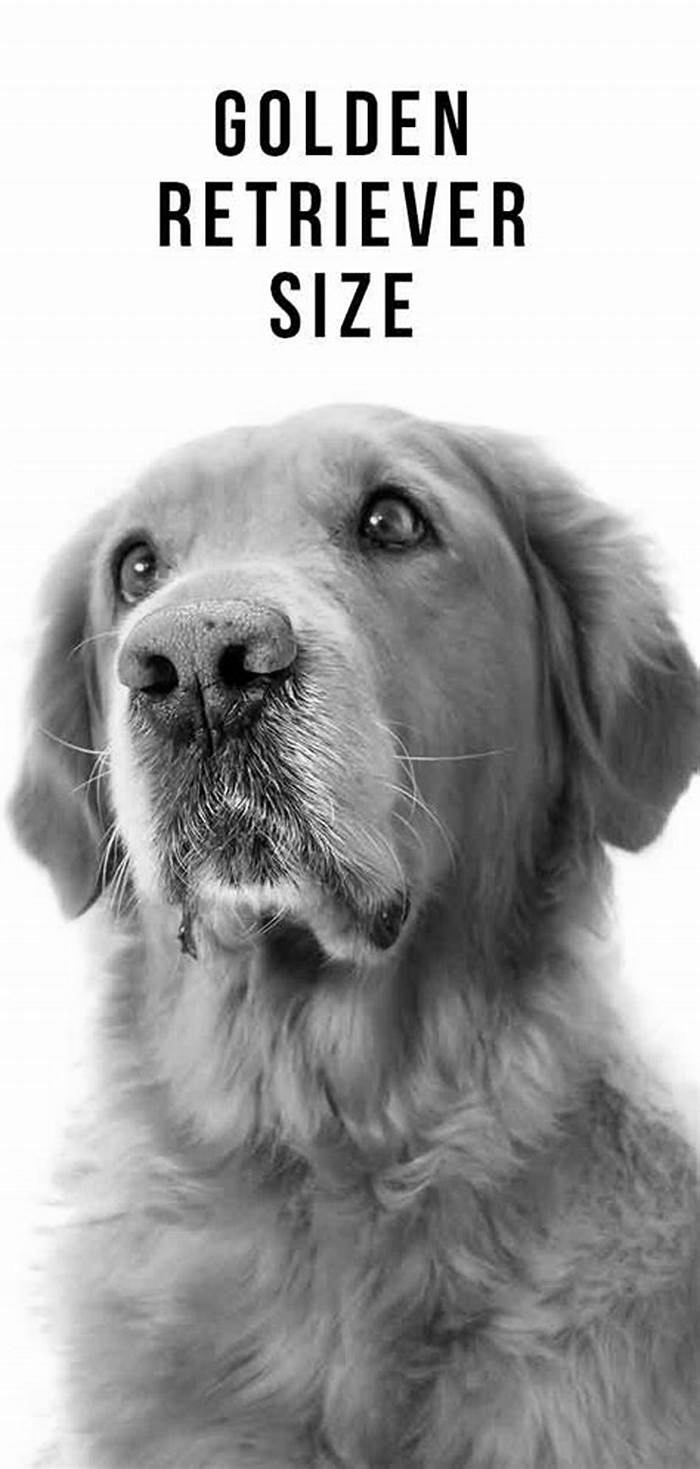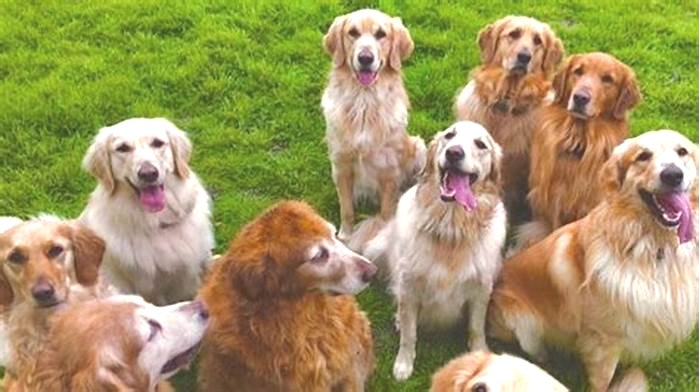At what age do Golden Retrievers slow down
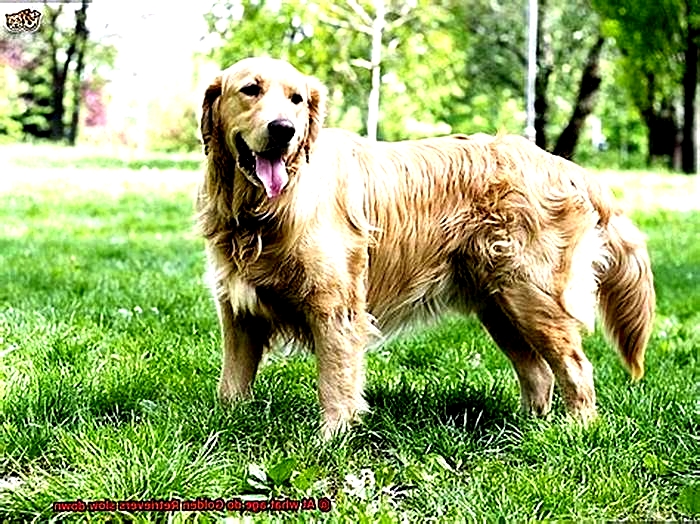
At what age do Golden Retrievers slow down?
Are you the proud owner of a Golden Retriever? Do you find yourself wondering when your furry friend will start to slow down? Well, wonder no more. In this blog post, well explore the age-old question: at what age do Golden Retrievers slow down?
Golden Retrievers are notorious for their boundless energy and playful nature. But like all living creatures, they will eventually start to slow down as they age. So, what factors can impact how quickly or slowly your Golden Retriever ages? And how can you tell if your dogs slowing down is due to old age or a medical condition?
In this blog post, well delve into the science of canine aging and provide answers to these questions and more. Well also offer tips and tricks for supporting your furry friend as they transition into their golden years. From adjusting their diet and exercise routine to scheduling regular vet check-ups, weve got you covered.
So whether youre a seasoned Golden Retriever owner or considering adopting one, sit back, relax, and get ready to learn all about the fascinating world of Golden Retriever aging.
What is the Average Age for Golden Retrievers to Slow Down?
Golden Retrievers are adored for their friendly personalities and boundless energy. However, as these furry friends age, they tend to slow down and become less active. So, when do Golden Retrievers typically slow down? According to experts, the average age is between 8 and 10 years old. At this stage of their lives, they may experience age-related health issues such as arthritis or joint pain. This can make it challenging for them to move around as easily as they used to.
As a dog ages, their body undergoes many changes that affect their activity levels. Their metabolism slows down, leading to weight gain and reduced energy levels. Additionally, their joints may become stiff or arthritic, causing them to have difficulty enjoying activities they once loved.
Its important to note that every dog is unique; some Golden Retrievers may slow down earlier or later than others due to factors such as genetics, diet, and overall health. However, its crucial to understand the changes that occur in a Golden Retrievers body as they age.
Being a responsible owner means providing your senior Golden Retriever with the appropriate care and attention they need during this stage of life. This includes adjusting their diet to include more senior-specific foods that provide them with the necessary nutrients for their aging bodies. Regular exercise is also essential, even if its just short walks or gentle playtime in the backyard.
If youre concerned about your Golden Retrievers activity level or overall health, dont hesitate to talk to your veterinarian. They can evaluate your dogs health and make recommendations for lifestyle changes that can help keep them healthy and active for as long as possible.
Signs of Aging in Golden Retrievers
Golden Retrievers are beloved for their vivacious and playful personalities, but as they age, they may experience physical changes that can impact their overall well-being. Therefore, it is crucial for pet owners to be aware of the signs of aging in Golden Retrievers, so they can provide their furry companions with the proper care they require to age gracefully.
One of the most noticeable signs of aging in Golden Retrievers is a decrease in energy levels. Your once-energetic pup may not have the same stamina or endurance as before, and may need more rest and relaxation. Thus, it is vital to adjust their exercise routine accordingly, providing shorter walks or less strenuous activities to avoid overexertion.
Another common sign of aging in Golden Retrievers is joint stiffness or pain. This can make it uncomfortable or even painful for them to move around, and you may observe them limping or having difficulty standing up from a lying down position. Fortunately, joint supplements or anti-inflammatory medication prescribed by your veterinarian can help alleviate this discomfort so your dog can continue to enjoy their daily activities.
As dogs age, they may also experience vision or hearing problems. Your Golden Retriever may have trouble seeing objects that are far away or distinguishing between colors, while hearing loss can make it difficult for them to respond to voice commands. To accommodate these changes, be patient with your dog and utilize hand signals or visual cues when communicating with them.
Lastly, older dogs may experience changes in their appetite or digestive system. They may have trouble digesting certain foods or lose interest in eating altogether. This can lead to malnutrition or weight loss if not addressed properly by adjusting their diet accordingly. Therefore, its essential to talk to your veterinarian about appropriate dietary changes and supplements that can support your dogs digestive health.
How to Help Your Senior Golden Retriever
But as they age, they may start to experience health issues that require special care and attention. Here are five tips on how to help your senior Golden Retriever live a happy and healthy life.
Exercise
Although your senior Golden Retriever may not have the same energy levels as they used to, regular exercise is crucial for keeping them mobile and maintaining their muscle mass. Short walks, gentle playtime in the backyard, and swimming sessions are excellent options that can help improve their physical and mental well-being.
Nutrition
As dogs age, their nutritional needs change, so its important to provide them with a healthy and balanced diet. Consult with your veterinarian about senior-specific foods that provide the necessary nutrients for your aging Golden Retriever. Additionally, adding supplements like glucosamine and chondroitin can help support their joint health.
Comfortable Living Space
Providing your senior Golden Retriever with a comfortable living space is essential for their well-being. Make sure they have a soft and supportive bed, easy access to food and water, and keep their living space warm and free from hazards that could cause injury. A warm and cozy living space will help them feel safe and secure in their home.
Regular Check-Ups
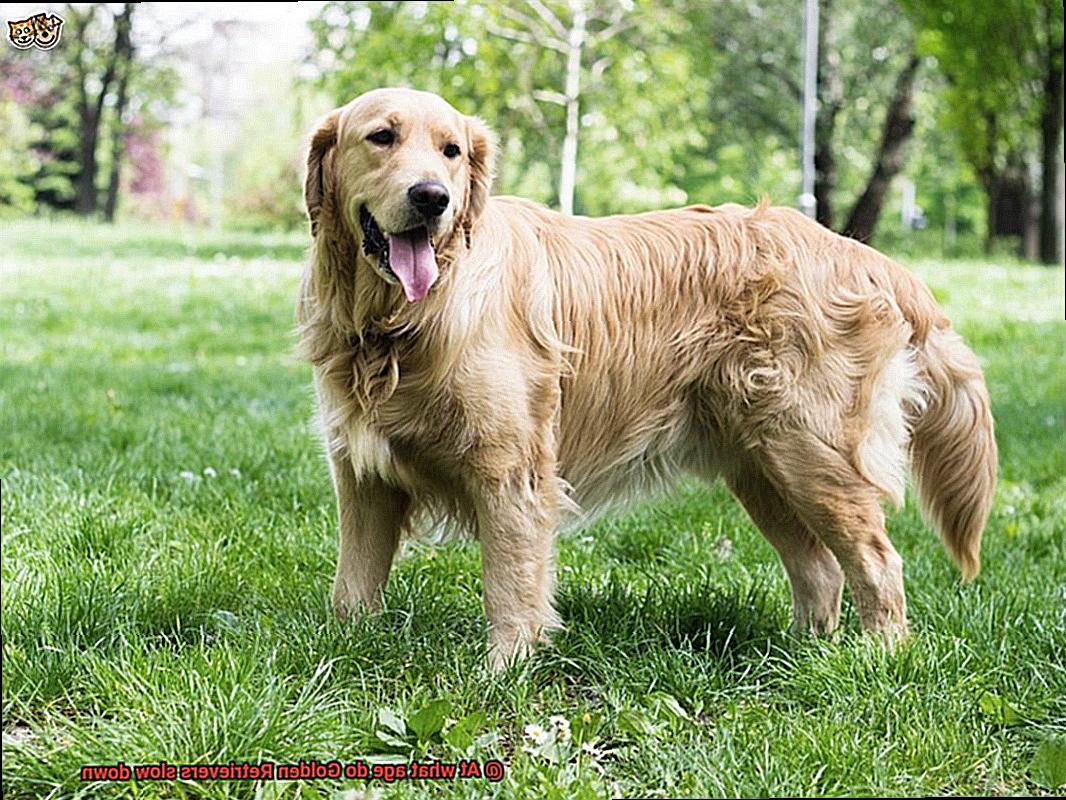
Senior Golden Retrievers may require more frequent check-ups with the veterinarian to monitor any health issues they may be experiencing. Regular check-ups can help catch any potential health concerns early on, allowing for prompt treatment and management of any chronic conditions.
Emotional Support
As your furry friend ages, they may become more dependent on you for emotional support. Maintaining a consistent routine and providing plenty of love and attention can help ease their anxiety and make them feel safe and loved. Take time to cuddle with them or engage in gentle playtime to show them how much you care.
Diet and Nutrition for Senior Golden Retrievers
As our beloved Golden Retrievers age, their nutritional needs shift, and its important to adjust their diets accordingly. Senior Golden Retrievers require a balanced diet that is lower in fat and calories to help them maintain a healthy weight and avoid obesity, which can cause joint pain, diabetes, and heart disease.
To achieve this, its recommended to feed your senior Golden Retriever senior-specific foods that are formulated with fewer calories and less fat. This will provide your dog with the necessary nutrients without the added risk of weight gain.
Protein is another essential component of a senior Golden Retrievers diet. As they age, muscle mass can deteriorate, making it crucial to include high-quality protein sources such as chicken, fish, and lamb in their meals. These protein sources will help keep your furry friend strong and active for years to come.
Supplements are also crucial for senior Golden Retrievers. Glucosamine and chondroitin can help support joint health and mobility while Omega-3 fatty acids found in fish oil supplements can help maintain healthy skin and coat. These supplements can make a significant difference in the quality of life for senior dogs.
Its important to remember that every dog is unique and has different dietary needs. Therefore, consulting with your veterinarian is essential when creating a meal plan for your senior Golden Retriever. Regular check-ups will help monitor weight and overall health as your dog ages.
Exercise for Senior Golden Retrievers
As our furry friends grow older, their exercise needs change too. Golden Retrievers, known for their high energy and love for outdoor activities, may need to slow down with age and adjust to a more gentle exercise routine.
However, its crucial to keep senior Golden Retrievers active to maintain their overall health and well-being. Low-impact exercises such as swimming or walking are excellent options to keep them moving without causing joint pain or discomfort. Swimming is particularly beneficial as it is easy on their joints and can help build muscle mass. Walking provides a low-impact workout that can help improve cardiovascular health and maintain muscle tone.
As you exercise with your senior Golden Retriever, its essential to monitor their energy levels and watch for signs of fatigue or discomfort. If your dog seems tired or is panting heavily, it may be time to take a break or shorten the exercise session.
Mental stimulation is also crucial for senior Golden Retrievers. Engaging in activities like puzzle games or obedience training can help keep their minds sharp and prevent cognitive decline.
Here are some tips for exercising safely with your senior Golden Retriever:
- Consult with your veterinarian before starting any new exercise routine.
- Adjust the length and intensity of exercise sessions based on your dogs physical limitations.
- Watch for signs of fatigue or discomfort and take breaks as needed.
- Try low-impact exercises such as swimming or walking.
- Engage in mental stimulation activities like puzzle games or obedience training.
Common Health Issues in Older Dogs
As our beloved dogs age, they may encounter a number of health issues, and Golden Retrievers are no exception.
While these furry friends are known for their energy and enthusiasm, its important to recognize that they can face several health problems as they get older. In this article, well delve into some of the most common health issues that can affect older Golden Retrievers.
Arthritis is one of the most prevalent health issues that can slow down Golden Retrievers. This condition is characterized by inflammation in the joints, which can cause pain, stiffness, and difficulty moving around.
Sadly, arthritis cannot be cured, but it can be managed with medication and supplements. By working closely with a veterinarian to create a tailored treatment plan that meets your dogs individual needs, you can help alleviate their discomfort and improve their quality of life.
Hip dysplasia is another common issue in Golden Retrievers. This condition occurs when the hip joint does not develop properly, leading to bone rubbing against bone and causing pain and discomfort.
While mild cases can be treated with medication and weight management, severe hip dysplasia may require surgery. Regular check-ups with a veterinarian are crucial to catch any early signs of hip dysplasia and ensure prompt treatment if necessary.
Obesity is another significant issue in older dogs, including Golden Retrievers. Overweight dogs are at an increased risk of developing arthritis, diabetes, heart disease, and other conditions.
To prevent obesity and maintain your dogs overall health, its important to monitor their diet and exercise routine. Low-impact activities like swimming or walking are great options for older dogs who may have trouble with more intense exercise.
Finally, cancer is undoubtedly a serious concern for Golden Retrievers as they age. This breed is prone to certain types of cancer, including lymphoma and hemangiosarcoma. Regular check-ups with a veterinarian are essential to catch any early signs of cancer and ensure prompt treatment if necessary.
Conclusion
In conclusion, Golden Retrievers are known for their friendly personalities and endless energy. However, as they age, they tend to slow down and become less active. Typically, Golden Retrievers start to show signs of slowing down between the ages of 8 and 10.
As a responsible owner, its crucial to understand the changes that occur in a senior Golden Retrievers body. Providing them with appropriate care and attention during this stage of life is essential. This includes adjusting their diet to include more senior-specific foods that provide them with necessary nutrients for their aging bodies.
Regular exercise is also vital, even if its just short walks or gentle playtime in the backyard. Aging Goldens may experience decreased energy levels, joint stiffness or pain, vision or hearing problems, and changes in appetite or digestive system. Therefore, maintaining a balanced diet that is lower in fat and calories can help them maintain a healthy weight and avoid obesity.
Exercise needs also change with age; low-impact exercises such as swimming or walking are excellent options to keep them moving without causing joint pain or discomfort. Mental stimulation is also crucial for senior Golden Retrievers.
Its important to note that common health issues can affect older Golden Retrievers such as arthritis, hip dysplasia, obesity, and cancer. Regular check-ups with a veterinarian are essential to catch any early signs of health concerns and ensure prompt treatment if necessary.

